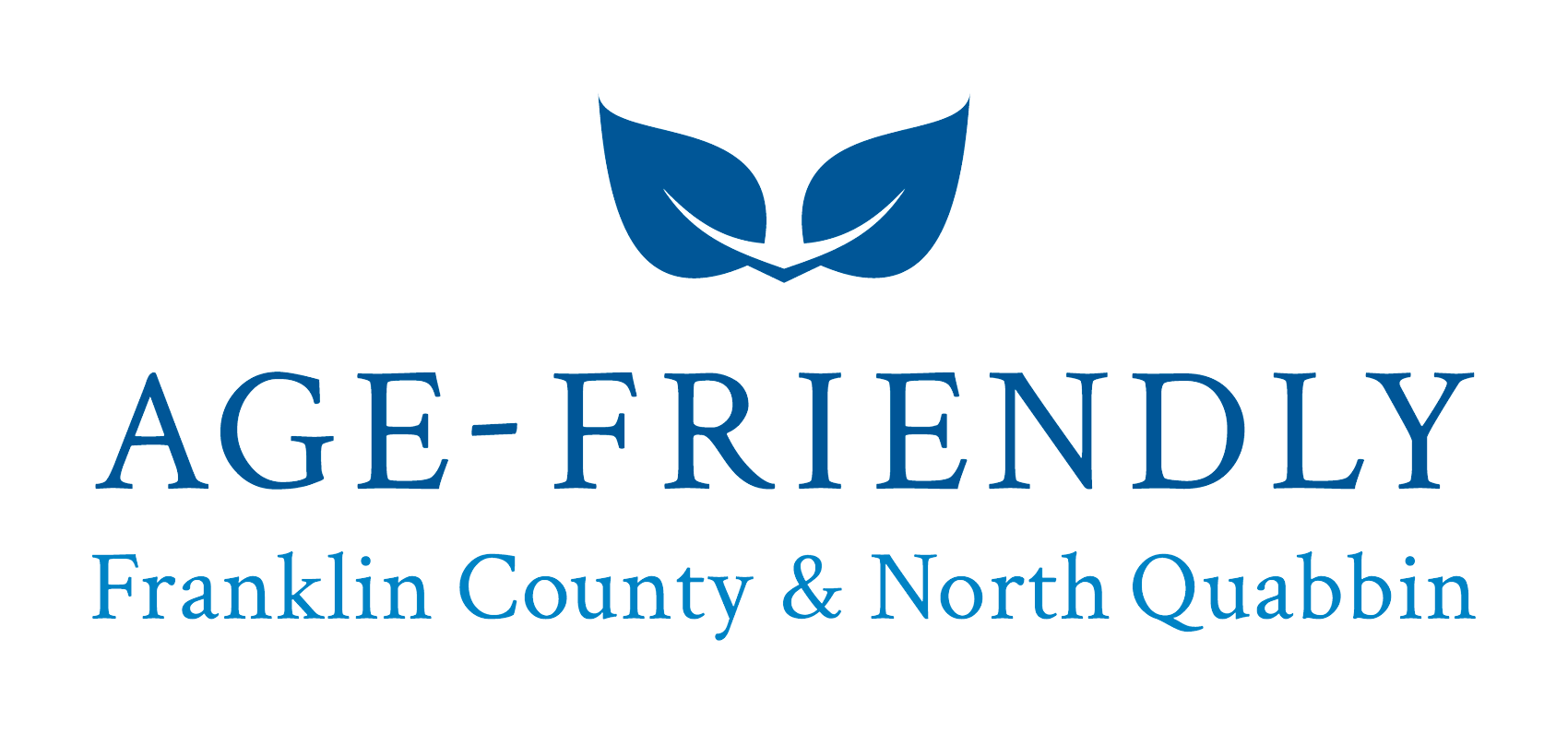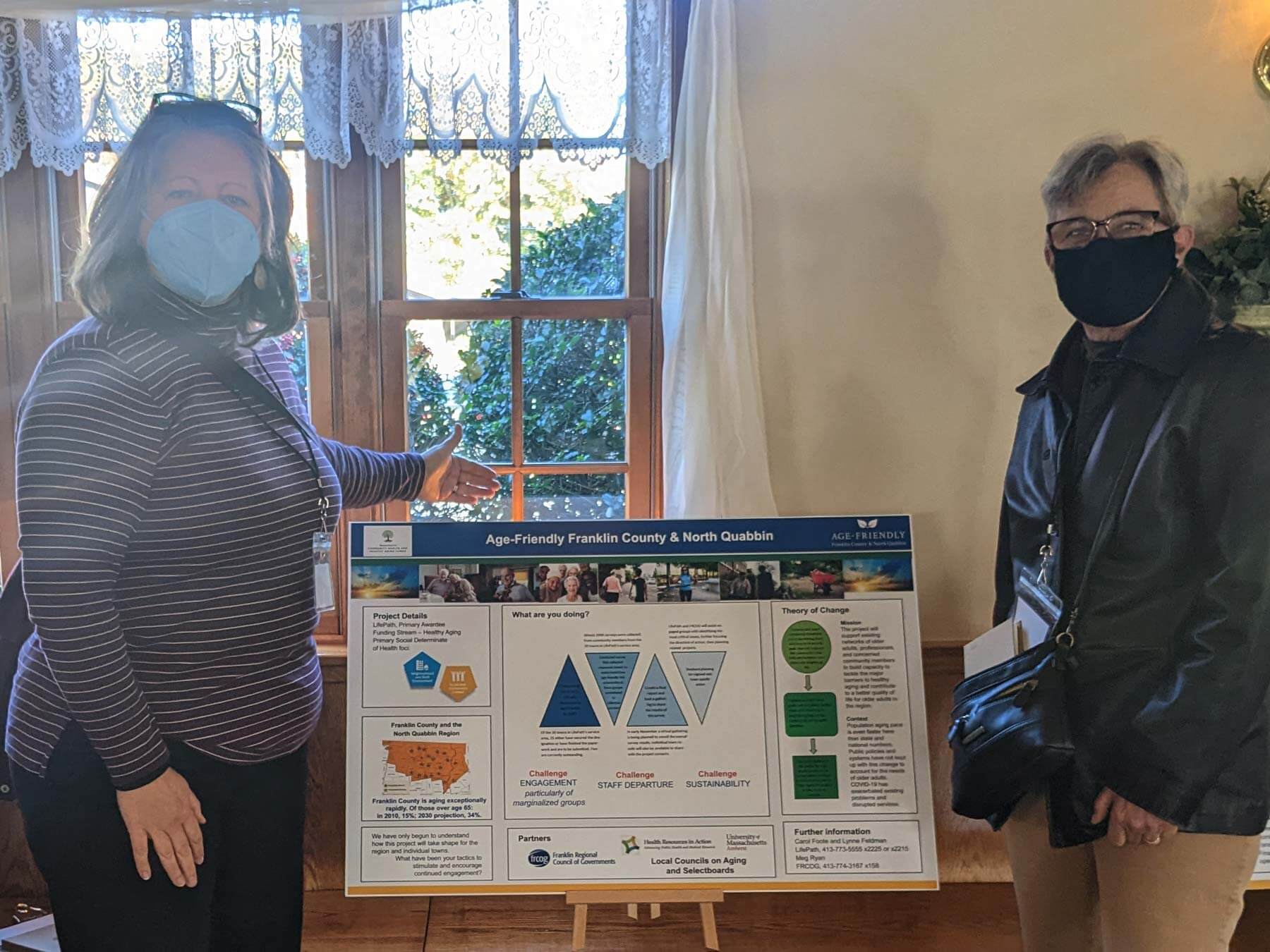
Aging in Place Workshop Series Recordings
In Spring 2024, LifePath partnered with Greenfield Community College to offer a series of virtual programs on Aging in Place. Here are the links to the recorded versions of the workshops. (To view, click on the YouTube image on the lower left side of the screen.)

How LifePath and FRCOG’s Regional Action Plan Is Improving Our Community for Older Adults
Have you been or known an older adult who could not find transportation to a medical appointment? Or who needed to find an affordable place to live? How about someone (or yourself) who is having trouble getting to the grocery store, cooking meals, or feels like they could experience a fall or other medical event

Making LGBTQIA+ Elders Feel Welcome and Cared For
It is imperative that we take a stance to work towards equity and inclusion for the LGBTQIA+ community. Research shows that upwards of five percent of long-term care residents are members of the lesbian, gay, bisexual and/or transgender community. This short video explains the issues facing LGBTQIA+ elders in long-term care communities and how to become

Age- and Dementia-Friendly Action Plan Released
An age- and dementia-friendly community is a place that makes it easy for older people to stay connected to people that are important to them. And it helps people stay healthy and active even at the oldest ages and provides appropriate support to those who can no longer look after themselves. LifePath, together with its

Aging as LGBTQIA+: Two Stories
It is imperative that we take a stance to work towards equity, and inclusion for the LGBTQIA+ community. The short video below displays the disadvantages and discrimination older adults who identify as part of the LGBTQIA+ community face throughout their livelihoods. Our civic duty calls us to acknowledge these disparities, and actively engage all older
Community Members Are Invited to an Age- and Dementia-Friendly Conversation
LifePath, together with its partner Franklin Regional Council of Governments, is leading an initiative towards helping our area become more age- and dementia-friendly. Community members are invited to an in-person conversation and information session about the Age- and Dementia-Friendly Project Thursday, June 22, from 2 to 4 PM, with a resource fair beforehand from 1:30-2

Age-Friendly Communities: Implementation and Success in Rural Areas
As our population ages, it’s important to ensure that our communities are equipped to meet the needs of older adults. That’s why AARP created the Age-Friendly Communities program. This initiative helps cities and towns become more inclusive and accessible for people of all ages, with a focus on older adults.
Since 2020, LifePath, together with its

Making Tracks Toward Becoming Age- and Dementia-Friendly
Image above: Carol Foote and Age-Friendly Franklin County & North Quabbin steering committee member Peggy Vezina show off a board that showcases the work of the local project at the gathering hosted by MACHHAF and HRIA.
Over the last two years, the Age-Friendly Franklin County and North Quabbin project has made progress in raising awareness and

The World Health Organization (WHO) Global Report on Ageism
Barbara Bodzin, Executive Director
Age is one of the first things we notice about other people. Ageism arises when age is used to categorize and divide people in ways that lead to harm, disadvantages, and injustice and erodes solidarity across generations.
Ageism refers to stereotypes (how we think), prejudice (how we feel), and discrimination (how we
What Does an Age-Friendly Community Mean to You?
If you are familiar with the term Age-Friendly Communities, then you know it is a global movement that promotes healthy aging and adequate support for older adults to remain independent and to fully participate in their communities. You might also know that AARP is the national sponsor of the program in the U.S., and that
Recognizing the Need to Make Our Region More Age-Friendly
This October marks one year since the launch of LifePath’s Age- and Dementia-Friendly Communities Project in Franklin County and the North Quabbin. This initiative, which is based on the age-friendly community model created by the World Health Organization and administered in the United States by AARP, seeks to help make our communities more aware and

LifePath’s New Initiative Aims to Make Our Communities More Age-Friendly
LifePath is embarking on an exciting new initiative with the aim of making communities in Franklin County and the North Quabbin region more age-friendly. Unlike many of our direct service programs, this project will target long term, policy and systems level change to both the built environment and the social environment. So, what does it
